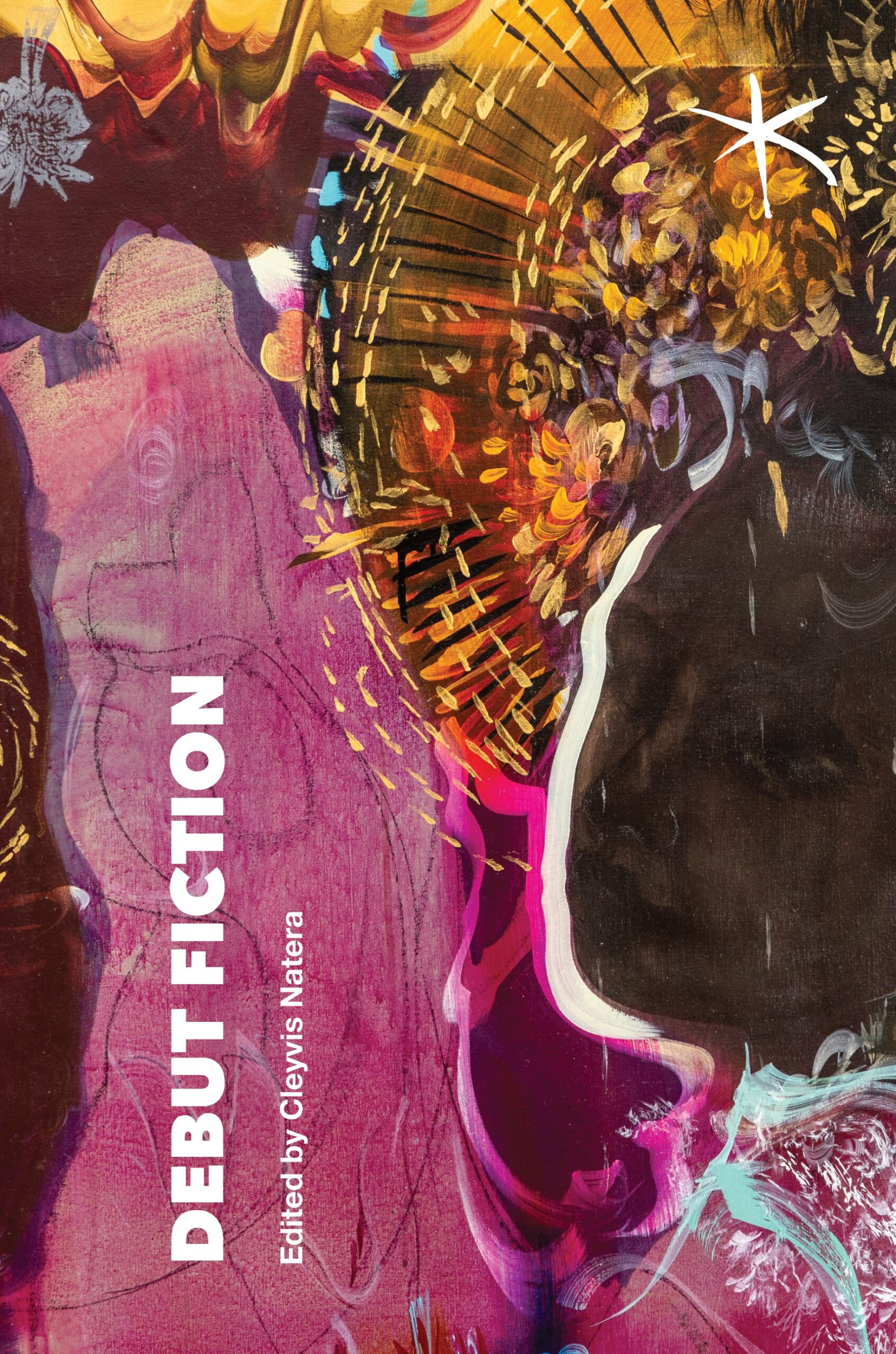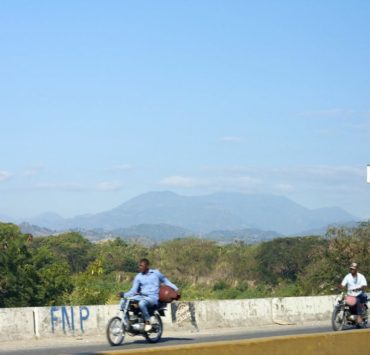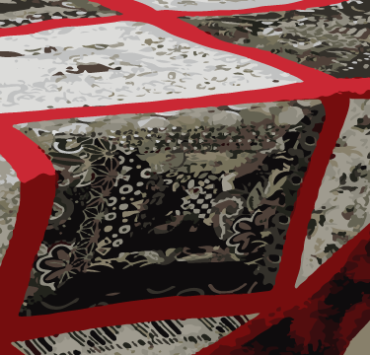
August 1983
It had poured rain and thundered all day just like a hot August storm should, and when I opened the door to my friends Lucy’s and Saima’s house, its glass metal sides tugged on the grapevines. Cooled-down rain, which had pooled on the leaves, showered down on me and wet my salwar kameez.
Lucy lived below Saima, and Saima lived above Lucy, and they both lived next to Shahnaaz, the neighborhood bully. I lived down the street, but in the summers, I spent all my time at Saima’s and Lucy’s.
The grapevines lived everywhere, acting like they were trees. They grew when our mothers called us in to eat. They grew when we played in the back lot acting like junglees. They grew at night when we were asleep, and in the mornings, we’d push against the door jambs, pull and twist the doorknobs to get out to go to our school, P.S. 19.
The biggest argument Saima and Shahnaaz always had was whose grapevines they really were. They were rooted in Shahnaaz’s yard, but most of the vines, with their baby hair twists, hung, swung over the fence, and knelt down and touched the ground in Saima’s yard.
I always sat on Saima’s side of the grapevines, on the red vinyl cushion benches under the trees. Saima I had known since she and I were born, and even before because our fathers had been best friends in Peshawar. They had come to America together with their tight-fitting British suits, curly dark hair, and sunglasses. In Pakistan, they had worn white lab coats. They had been scientists, but in Corona, they worked in stores. Now Saima’s father wore tight pants and shiny shirts while he sold radios, VCRs, and illegal copies of Bollywood movies. My father wore his lab coat as a butcher at his Gosht Dukan, Corona Halal Meats. Whenever I visited him, it was covered with blood.
Lucy’s father was from the Dominican Republic. He used to work all the time, too, but he had lost his job, Lucy said, because the boss hated Dominicans. Now her father was always outside under the grapevines. He had a fat belly that hung out of his wife beater. His hair was white and curly all over his chest. He knew how to make wine, and he’d be drinking wine made from the last year’s grapes. Lucy’s father yelled at us in his broken English when he saw us popping the sour green grapes into our mouths.
“Hey! You! Get away from my grapes!”
After it rained was the best, because Lucy’s father would be inside watching TV. Then we’d pull on the vines like hair and feel the rain down our cheeks, soak our clothes, our salwar kameezes. It would feel cold, sweet, and green–while all the air around us was thick liquid, about to burst like a sneeze.
On one of these summer days, Shahnaaz was poking around in the old abandoned garage that had come with her house. Her family didn’t have a car so the garage was left to pile up with junk. It was the kind of place stray cats had babies. The kind of place rats lived. The kind of place you wouldn’t go into by yourself, unless you thought you were a bully and a badass like Shahnaaz did.
Our main way of getting money for candy was to look under the cushions of sofas. There the loose change that leaked out of our fathers’ and uncles’ pockets would slip down and collect into underground pools of pennies, nickels, and dimes. Shahnaaz’s brother had just moved an old sofa into the garage, and she thought she had found an undiscovered treasure, but when she lifted the cushion, it wasn’t George Washington’s head or even Abraham Lincoln’s she saw. She saw a woman in a glossy magazine, her nipples pink and round as quarters, her mouth wide open, her head thrown back and nothing on her body but a thin sheet draped over her legs.
Shahnaaz didn’t say this, but I’m sure her eyes popped. None of us had breasts, but Shahnaaz always acted like she did, pushing her chest out whenever we walked around the block. She thought she was the prettiest, and the only reason we agreed was because her brother Amir was two years older and would beat us up if we said she wasn’t.
When Shahnaaz came up to the fence, Saima and I were sitting under the grapevines pooling our cushion change to see if we could buy candy. Every so often, Saima and I would reach up and pull down a handful of sour green grapes. When we saw her, we weren’t happy.
“Whatcha doing?”
“None of your business.” Saima had to deal with Shahnaaz more, so she had less patience.
“Oh, yeah? Well, maybe it is my business because you’re eating my grapes.”
We rolled our eyes and ignored her, but she continued, “What I found in the garage is none of your business either.”
I tried to be tough. “So what then? It’s none of our business.”
But it was useless. Ten minutes later Shahnaaz was chewing gum and reading the Bazooka Joe comics. I was sneezing from the dust in the garage, and Saima was trying to find a place to sit that wasn’t covered with rat pee. Shahnaaz pulled out the magazines, and our mouths dropped open. There was a whole pile of them full of naked men and women in all sorts of positions. Some of them were doing everyday things like eating breakfast, just naked. One woman was spread out on a car.
“Ewww. This is gross,” Saima said, but she kept looking. I did, too. I couldn’t stop myself from flipping through the pages. I kept the tips of my fingers on the edges, though, so I didn’t have to touch the skin. Whenever they accidentally did, I could feel my fingers burning.
There was one lady I couldn’t stop looking at. She was the only one who wasn’t blonde. She was tall and had dark brown hair and brownish skin. Her body was thin, and she was sprawled out asleep on a bed, completely naked. Her eyebrows were wrinkled, and her hair was messy. There was brown hair, curly and thick, between her legs, brown hair, curly and thick, underneath her arms, in places where my skin was still as smooth as a baby’s. The picture must have been taken by someone on top of her. She looked like she was sleeping and having a very bad dream.
“Are they your brother’s?” Saima was the first to ask.
“No! My brother would never look at something like this. It’s—”
“Guna,” I said. A sin. It was what we learned in masjid where our religious teacher, Hafiz Saab, taught us the long lists of what was guna and what wasn’t.
It was what we learned at home. “Guna!” my mother always said, especially in the summer when people in our neighborhood walked around wearing almost nothing. “They don’t know any better. But you do. You think it’s hot now? When you go to Hell, demons will take torches and set fire to all the places you left your skin naked. And as much as you scream and cry, or say please, please, Allah forgive me, Allah will say, ‘You didn’t listen to me when you were alive, why should I listen to you when you’re dead?’” She wiped the counter. “But Allah is merciful, and when the demons have burned you enough, He’ll forgive you, give you new skin and bring you up to heaven.”
“But how long until I could go to heaven?” I’d say, trying to push the images of demons out of my mind.
“In Hell, every day is an eternity,” my mother would say, then leave me to go clean.
“We have to burn them.” Shahnaaz’s voice was like the voice in my head.
“Saima, does your mother have matches?”
“I don’t want to go home. My mother won’t let me come back out.”
Shahnaaz looked at me. “Razia, go ask the man at the store.”
“Why me?”
“Because you’re the favorite.”
It was true. The bodega owner always gave me free candy whenever I went to buy milk for my mother. She didn’t know the bodega was just a front for selling drugs. I didn’t either. I just thought it strange that the front windows were full of dish detergent, Ajax, Raid, and Mr. Clean, but the back shelves were barely stocked with anything. The only other thing they sold was milk. At some point, the owner, the man with the gold tooth, must have realized the store could look more legit if they carried dairy. Plus, he could get it cheap for his family. He always said I was his best milk customer, even though I never saw anyone else buying milk there.
When I walked in, the bell rang, and the smell of wet cardboard hit me in the face. Inside, it was ten different shades of dark. A grey cat sat in the corner licking herself. The owner was at the front counter, cleaning his fingernails with a match. His friend, the man with the black moustache, was next to him. They were speaking in low, angry whispers.
The door slammed behind me, and the bell rang loud and frantic. A gold tooth flashed in the dark. “Ah, look who it is. My girlfriend!”
I giggled. The owner’s friend grinned, and I could see he was missing his front teeth. He must not have had enough money to replace them with gold.
I quickly asked, “Could I please have a pack of matches?”
The man with the gold tooth passed the matches over the counter. “Baby, what you want matches for?”
I stood on my tiptoes, bit my tongue, and lied, “They’re for my father,” then mumbled, “Thank you,” grabbed the pack, and ran out the door.
When I got back, Saima and Shahnaaz were pulling a metal garbage can into the back alley next to the railroad tracks so the grown-ups couldn’t see what we were doing. We had had fire safety training in school and knew we had to be careful. We threw all the magazines in. Shahnaaz insisted she had to light the first match since she had found the magazines.
“But I’m the one who went to get the matches!”
“Yeah, but you’d have nothing to burn if I hadn’t found them.” Shahnaaz pointed inside the garbage can.
I looked and saw my woman with brown hair still laid out on the bed. I wondered how she had ended up that way. Her mouth looked soft and sad. My mother always told me that it only took one step off the right path to start your downfall. Maybe one step like lying about matches.
“There’s only one straight path,” my mother always said, “and you need to pray to Allah you stay on it. It’s the right path that looks difficult. All the others tempt you, but at the end of each one, there is a trap that drops you into a burning red hot pit of fire with demons.”
“But how do you know if you’re walking the right path or the wrong path?” I’d ask, trying to push the image of demons out of my mind.
“Listen to what I tell you,” my mother would say, and then she’d leave me to go clean.
“Fine. You can light the first match,” I said. “Stupidhead,” I mumbled under my breath.
Shahnaaz struck the match against the flint and dropped it quickly into the garbage can. We all stepped back, thinking it was going to explode. But it didn’t. The magazines were thick and glossy, and the garbage can was damp. We watched as the flame burned, lowered, and then flickered away. Shahnaaz lit match after match, but each one flickered and went out.
“You have to get more matches.” She acted all annoyed, as if it was my fault she didn’t know how to start a fire.
I didn’t argue this time. I wanted the magazines to burn. I ran all the way to the bodega thinking of the woman in the garbage can. Where had she gone wrong? I thought of how easy it was to want to sleep instead of get up to read Fajr namaaz, to want to eat during Ramzaan. I thought of the boys I wanted to kiss: Julio, Philip, Osman. Is that how it had started for her?
When I got back to the bodega, the man with the gold tooth was alone, and this time he looked angry. I went to the back first, to the milk fridge, to figure out how to ask him again. If only I had enough money to pretend I was buying milk. The cat was still licking herself.
Finally, I came back to the front and asked, “Could I please have another pack of matches?” The owner looked at me hard. Something crossed his face. “Hey, what are you doing with these matches anyway?”
“They’re for my father,” I lied again.
“Tell your father he’s got to come here himself if he wants matches.” Then he looked guilty. He had never said no to anything I asked for before.
“Here.” He passed the matches and a square caramel over the counter. “Your favorite.”
I thanked him quickly and ran back to the alley behind Saima’s house.
“This time I want to light it,” I said. When Shahnaaz opened her mouth to argue, I cut her off. “We can’t get anymore matches, and you don’t know how to light them.”
Saima laughed and Shahnaaz gave her a look, but then she stepped back. I stepped up to the garbage can and looked down at my woman. I struck the match and held it to the whole pack, until it became one big flame, a fireball in my hands.
I dropped it right on her. The flame kept and started burning a hole through the center. It turned into a hundred flames shooting up from the silver metal. We could barely see the orange, yellow, and blue of them in the light.
The smoke rose, and the fire reached higher and higher. My woman’s skin was beginning to submit, relent. The bed she was on, her sad eyebrows drawn together, her mouth was melting away. Her body was covered with smoke, and I knew her spirit was being lifted, so she could fly clothed in fire all the way to heaven.

Bushra Rehman is co-editor of Colonize This! Young Women of Color on Today’s Feminism and author of Corona, a dark comedy about being Pakistani-American. Her poetry collection Marianna’s Beauty Salon has been described as "a love poem for Muslim girls, Queens, and immigrants making sense of their foreign home--and surviving.” Her next novel Roses, in the Mouth of a Lion, the story of a queer Muslim teenager growing up in NYC, is forthcoming from Flatiron Books in 2022.







